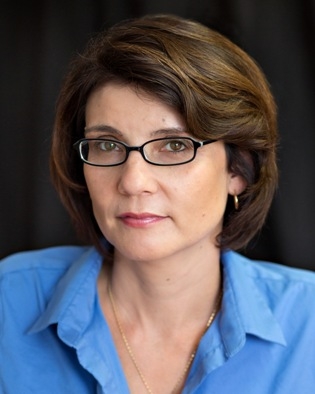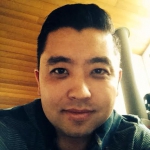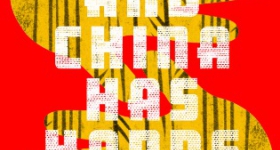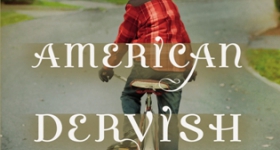On one of the walls in my current
home, there is a landscape that my grandfather painted in Korea some sixty-five
years ago. At first glance, it doesn’t seem like much: a rice paddy, a bare
tree, a blue sky peppered with wispy clouds. The eye is mostly drawn, however,
to a simple hut, the roof seemingly adorned with hay. In front of the house are
four large haystacks, the hay a vibrant yellow. The haystacks are large enough
to conceal part of the house, and almost blend into the roof, This painting has
been passed down from my grandfather, to my father, and eventually, to me. My
grandfather, a Renaissance man, painted thousands of paintings in his life, but
this painting came from a specific, special series: it was the house that he
spent a year of his life in hiding from the Japanese Empire. Eventually, the
Japanese army would find him, try him, and sentence him to death. My
grandfather resisted the Japanese during his imprisonment; he would not
renounce God, nor would he bow to the Emperor. My grandfather was fluent in
Japanese, but he refused to speak it. He was only spared at the eleventh hour
by the liberation of Korea at the end of World War II.
Fast-forward a few years. My
father, living in Seoul with his family, runs for his life, the North Korean
army in pursuit. Before he passed away, my father recounted to me this day, how
he fell and was carried on the back of my uncle to safety; how his own aunt was
lost in a sea of North Korean soldiers, never to be seen or heard from again.
My father died in 1994; my grandfather in 1996. Both were forever haunted by
their experiences. My grandfather chose painting and religion as his methods of
coping; my father simply chose not to share. They eventually left Korea for
good during the dictatorship of Park Chung-Hee in South Korea. My father would
only return to Korea once more in the twenty years before he died.
My family’s trauma has always
captivated me, but I’ve always known that it was only one story in a sea of
millions. And that sea is what Sheila Miyoshi Jaeger attempts to explore in Brothers at War, a detailed and
captivating look at the circumstances, causes, and effects of the Korea War,
and how a war that never truly ended indelibly shaped the fates of six
countries: North and South Korea, China, Russia, Japan, and the United States.
It is fitting that this book was released this year, the same year of the 60th
anniversary of the armistice agreement that stopped the fighting between the
Koreas, but not the war.

Photo of the Author by Rosen-Jones Photography
The Korean War has often been
referred to in popular Western media as “The Forgotten War,” but as Brothers at War makes abundantly clear,
it was never really forgotten in either of the Koreas, and the effects of the
war resonate in world politics to this day. For instance, the Sino-Soviet
breakdown between Mao and Stalin was almost directly caused by the Korean War;
as Jaeger makes clear, Stalin had no desire for the Soviet Union to enter into
a ground war with the United States, and instead manipulated Mao into sending
hundreds of thousands of troops into Korea once the United States began pushing
further north during the war. This had two effects, on favorable for Mao, and
another unfavorable: on the one hand, Mao populated the “People’s Volunteer
Army” with political enemies and Kuomintang members who had not successfully
fled to Taiwan; on the other, the Chinese side lost significantly more soldiers
than any other country that participated in the war.
It is perhaps for these reasons
that Miyoshi Jaeger’s work does feel disjointed in places. The narrative of the
war is presented in mostly chronological order, though each chapter presents a
different aspect of the war. Large parts of the middle of the text focus only
on the United States, China, and, to a lesser extent, Russia. This is not
surprising, given that the war was primarily fought between the United States
and China, but as a result of this focus, much of the effects of the war on
Korea as a country are completely ignored or pushed to the side. As someone of
Korean decent who was looking for some insight as to how the war affected the
Korean psyche, it is a bit disheartening to see Koreans, both North and South,
reduced to broad strokes, or defined solely by leaders such as Syngman Rhee,
the Kim dynasty and Park Chung-hee. Though those figures
are of obvious importance to the history of North and South Korea and for their
parts in the war, the monstrous psychological effect that the war had on the
people of both countries is glossed over.
Near the end of the text, the focus
does finally shift a bit back towards Korea, including an interesting section
on how South Korean soldiers, already known for how viciously they waged war
during the Korean War, played a large part in the Vietnam War; indeed, one of
the central theses of the book is that the Korean War was the test run for the
Vietnam War, with the US fighting an almost identical war with Vietnamese
communists as they did in Korea. However, Miyoshi Jaeger shows, at least in
part, how the damage wrought by the Korean War on South Korean led them to
fight more viciously, more intensely, and more “patriotically” than their
American counterparts. We learn that there were two goals for Park Chung-hee,
then the dictator of South Korea: the first was to reestablish the South Korean
army to keep them fit for combat in case fighting with the North resumed; the
other was to gain large amounts of American aid in exchange for more warm bodies
to fight. This, in turn, led to South Korea’s then-stagnant economy finally
getting a jump-start, and, eventually, becoming one of the strongest in Asia.
Though Miyoshi Jaeger denies readers
a focused lens on the people of South Korea, she does present the Korean War as
the frustrating battle that it was and continues to be. It is obvious after
reading this book why, in fact, the two Koreas remain split; they are still, in
many ways, proxy pawns for both the United States and China, though both Koreas
are showing clear signs of beginning to tire of this role, even as they both
know they cannot totally shed the influence of their occupying powers. Sixty
years since the armistice, Korea remains a frozen peninsula, the place where
the Cold War never ended.
Noah Cho teaches English at Marin Country Day School in Corte Madera, California. He is Hyphen's film editor.










Comments